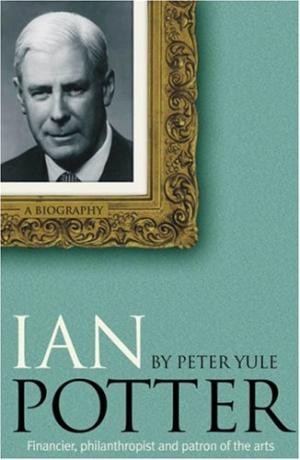First Edition. Number 73 in the second numbered series. Urbane, charming and with a razor-sharp intellect, Ian Potter was a dominant figure in the Australian business world from the 1940s to the 1970s. As a financier and stockbroker his understanding of macroeconomic trends and his close relationships with both providers and users of capital enabled him to play a key role in modernising the Australian financial system and financing for Australia s rapid industrial expansion. He was one of the first Australian financiers with an international outlook, and did much to encourage trade and cultural links with Japan and other Asian nations. Although his business career was overwhelmingly successful, he was involved in several controversial episodes, including the Cox Brothers Affair of the early 1960s and the collapse of Tricontinental in 1990. Ian Potter had a genuine love of the arts and made an important contribution to Australia s cultural development. A founding member and later chairman of the Australian Elizabethan Theatre Trust, he was closely involved in the development of the Australian Opera, the Australian Ballet and the Melbourne Theatre Company. As a member of the Victorian Arts Centre Building Committee, he was instrumental in negotiating the financial support from the state government that made the project possible. Intrigued by science and medical research, he helped found the Howard Florey Institute and his financial advice and support for the Academy of Science were recognised with a fellowship of the Academy, a rare honour for a non-scientist. While not strongly partisan (Gough Whitlam spoke at his 90th birthday party), in the 1940s, Ian Potter was involved in the foundation of the Institute of Public Affairs and the Liberal Party and he built up an unmatched network of friends at the highest levels of politics and the bureaucracy. Made wealthy by his business success, in 1964 Ian Potter set up the Ian Potter Foundation to give something back to Australia . He used his close connections with both state and federal governments to lobby successfully for reforms to the taxation laws to encourage private philanthropy. pp. ix, 429 illusts #1217
Ian Potter: Financier, Philanthropist & Patron Of The Arts
$25.00
Sold Out
Additional Information
| Author | Peter Yule |
|---|---|
| Publisher | Miegunyah Press / Melbourne University Press |
| Year Published | 2006 |
| Book Condition | As new. |
|---|---|
| Binding Type | Hardcover in Dustjacket |
